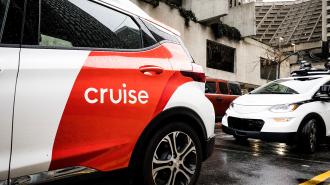Cruise, the GM-backed driverless car service startup, can now operate their robotaxis across all of San Francisco, 24/7, CEO Kyle Vogt announced on Twitter. Previously, the company could only charge for rides at night, as it was awaiting a permit from the California Public Utilities Commission to sell rides full-time.
“I have been waiting for this day for almost 10 years,” Vogt tweeted, calling it “a pivotal moment for our business.”
In June 2022, Cruise became the second driverless car service — after Waymo — to offer rides commercially, without a human backup driver in the vehicles; its operating area expanded from one corner of San Francisco to most of the city that fall, Freethink previously reported.
Beyond San Francisco, Cruise offers rides in Phoenix and Austin as well, and may be expanding its Lone Star locations — a job description for Dallas recently went up, as reported by Electrek.
According to Vogt, round-the-clock rides will be rolled out incrementally.
“A small portion of our fleet is now serving driverless rides 24 hours a day across all of San Francisco,” Vogt said on a GM earnings call, The Verge reported. “For us, this is a milestone years in the making and represents that our driverless fleet has real commercial value.”
The basic systems in place in San Francisco will be the same ones behind Cruise’s upcoming Origin driverless car model, which Vogt tweeted is “just around the corner.” Purpose built to be used in driverless car service — lacking pedals and steering controls — the Origin will phase out Cruise’s modified Chevy Bolts (even as Chevy does), and is expected to begin testing in Austin this year, per The Verge.
We’d love to hear from you! If you have a comment about this article or if you have a tip for a future Freethink story, please email us at [email protected].






